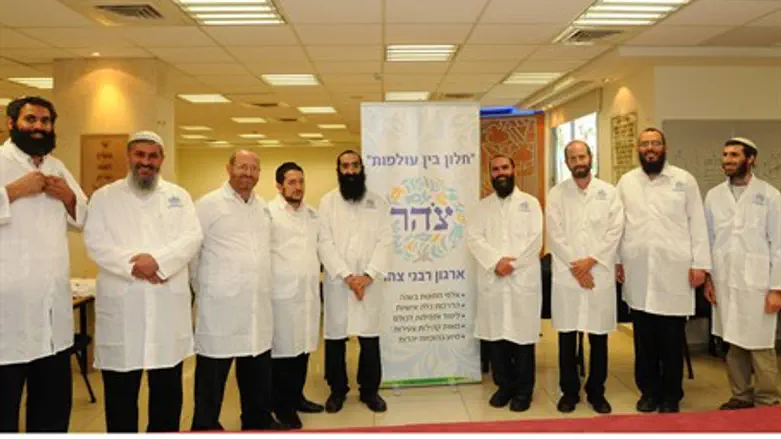
The Knesset has authorized a second and third reading of the "Tzohar" bill which would cause significant changes to the way marriages are conducted by the State of Israel. And while many Orthodox Jewish rabbis have come out in condemnation of the bill, at least one has warned that it may cause an unthinkable religious problem: mamzerut, or illegitimacy.
According to the new law, which has been embraced by the influential Religious Zionist party Bayit Yehudi (Jewish Home), couples would be allowed to choose their officiating Rabbi, with no requirement that he hail from their local Rabbinate. Israelis currently have to work closely with the local Rabbinate to obtain a marriage license, sometimes causing unpleasant tension between the couple, who may or may not be familiar with Israel's religious components to its legal marriage process, and the officiating Rabbi, with whom the couple just may not be familiar.
Rabbi Simcha HaCohen Kook, officiating rabbi for the central Israel city of Rehovot, disagreed with the measure in the strongest terms. "Anyone who wants to choose their own Rabbi [without State approval] will have to begin recording everything in a genealogy book - and those civil marriages will probably not be recognized in the future," the Rabbi claimed. "Bayit Yehudi has proved once again that they are a party for the Tzohar organization."
The remarks come in the latest of a string of attacks against the Bayit Yehudi party for various reasons, ranging from their participating in the vote on Tuesday's terrorist release (for which they voted against), to party leader Naftali Bennett's rededication to an alliance with coalition partner Yair Lapid (Yesh Atid), to other attacks related to support of the Tzohar bill.
The Tzohar organization, which backs the bill, attempts to smoothen tensions between religious and secular groups by providing Orthodox Rabbinic counsel that is familiar with secular norms to help couples navigate the heavily hareidi-run Rabbinate. Hareidi parties have already stated opposition to the bill.
Rabbi Kook marveled at the fact that every religious and legal institution is heavily centralized, but that when it comes to marriage, the prevailing attitude has leaned more and more to "every man for himself."
"Someone who is called for legal proceeding in [Tel Aviv suburb] Ramat Gan cannot ask to have a different hearing in Eilat," Kook said, claiming that "no other place in the world allows couples to decide [for themselves] under what jurisdiction they want to be married - only the State of Israel [does]."
Kook labels Bayit Yehudi's support of the bill as "criminal", firing that "they choose to support the bill without any Rabbinical backing. If people can marry anywhere, there will be a huge upswing in illegitimate children (mamzerut). Every city has a community which knows the members of each party's family, and knows about that family's personal history." Kook then offered a number of possible problems the unfamiliarity could cause. "What if a man chooses to divorce, and marries his ex-wife's sister while the ex-wife is still alive - all of their children are illegitimate," Kook postulates.
He also pointed out that a kosher Jewish divorce requires a Get, or religious divorce document, and without a legally obtained divorce document, all of a couples' children from a second marriage could be considered illegitimate, from an adulterous relationship.
Kook believes that it won't be long until the Diaspora religious communities do not recognize Israeli marriage licenses. If so, Kook claims, "the bill will uproot Judaism."